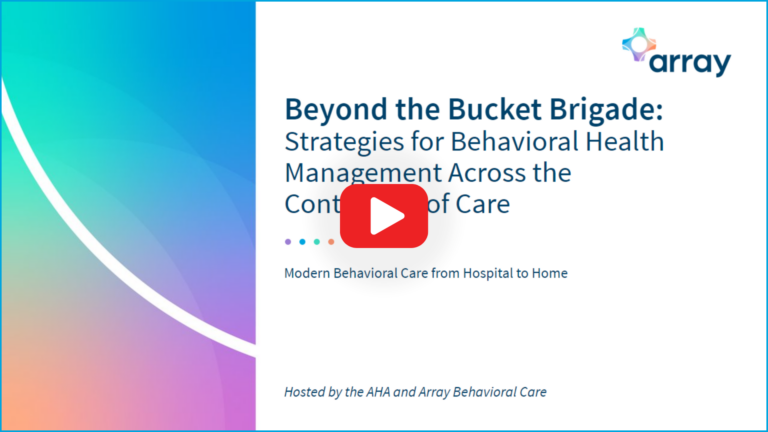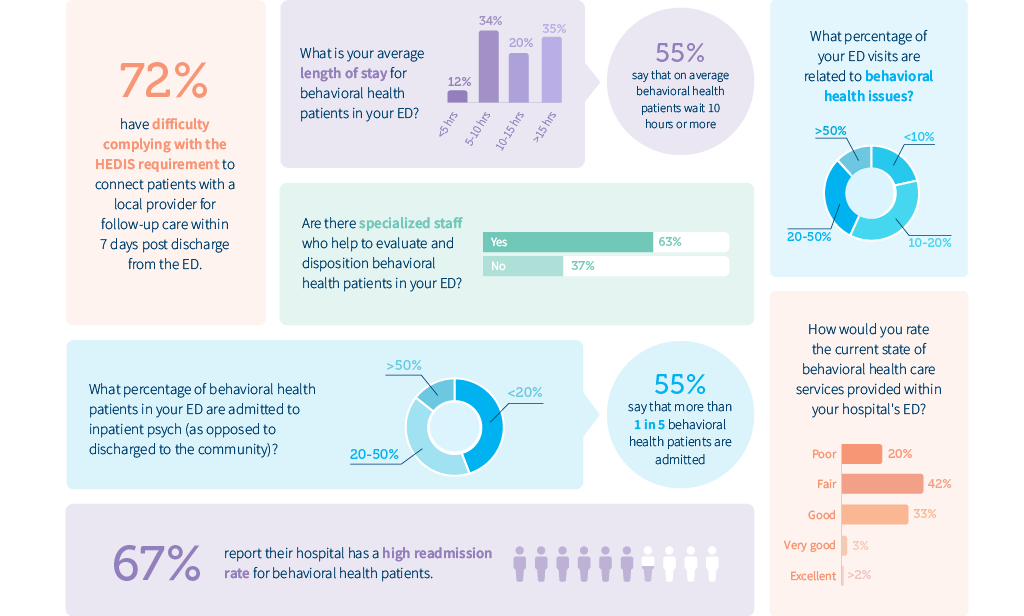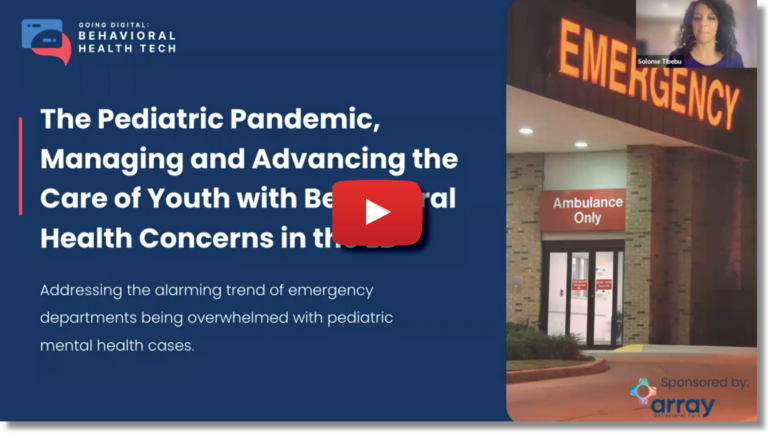Array Behavioral Care's CEO, Geoffrey Boyce, joins the Partnership to Advance Virtual Care to share lessons learned from the pandemic and how changes to legislative and regulatory environments could support patients and providers moving forward.
You’ve experienced the telehealth surge firsthand at the height of the public health emergency. Now, hear from Array and other leading providers on how we deployed telehealth solutions and supported patients during COVID-19, and how the healthcare industry can work together to maintain the positive momentum we’ve witnessed with telehealth implementation.
When
- October, 29, 2020 @ 2:00 PM Eastern Time
Panel
- Array Behavioral Care, Geoffrey Boyce, Chief Executive Officer
- Doctor on Demand, Latoya S. Thomas, Director Policy & Government Affairs
- 98point6, Dr. Brad Younggren, Chief Medical Officer
About Array
Array Behavioral Care (formerly InSight + Regroup) is the leading and largest telepsychiatry service provider in the country with a mission to transform access to quality, timely behavioral health care. Array offers telepsychiatry solutions and services across the continuum of care from hospital to home with its OnDemand Care, Scheduled Care and AtHome Care divisions. For more than 20 years, Array has partnered with hundreds of hospitals and health systems, community healthcare organizations and payers of all sizes to expand access to care and improve outcomes for underserved individuals, facilities and communities. As an industry pioneer and established thought leader, Array has helped shape the field, define the standard of care and advocate for improved telepsychiatry-friendly regulations. To learn more, visit www.arraybc.com.











